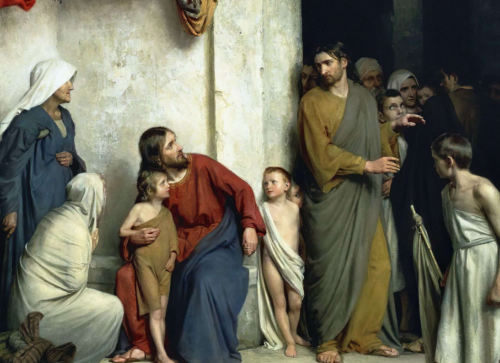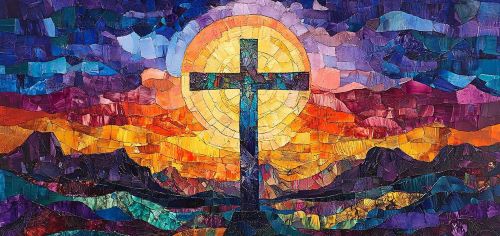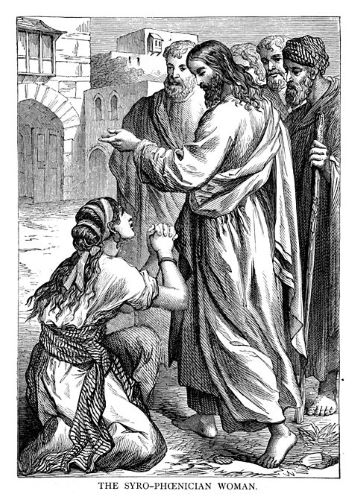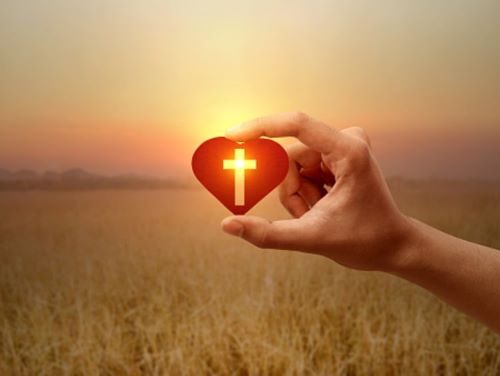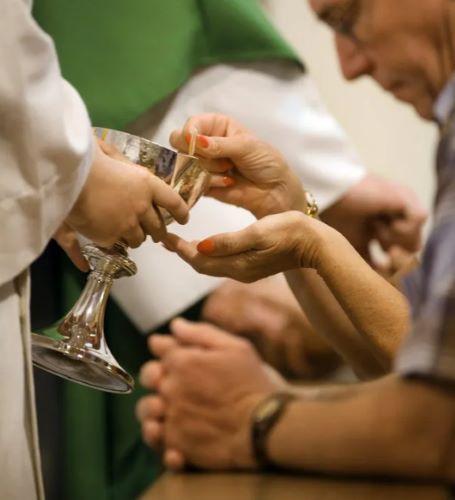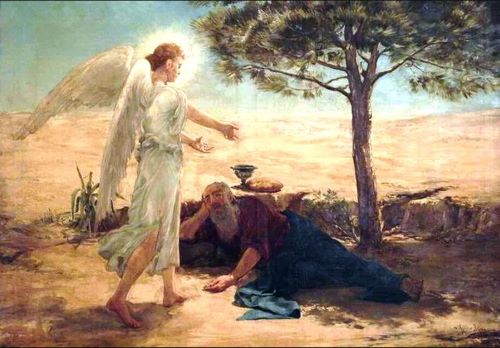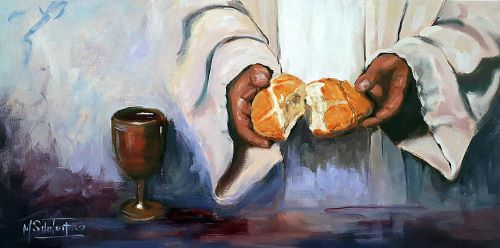Dust and Temptation
Year A
Genesis 2:15-17; 3:1-7
Psalm 32
Romans 5:12-19
Matthew 4:1-11
May the words of my mouth… O God… speak your truth…
In an article I read last month… describing his new book… What’s Gotten Into You: The Story of Your Body’s Atoms From The Big Bang Through Last Night’s Dinner… Dan Levitt draws a series of striking images which trace how… from the first subatomic particles in the universe… the forces of gravity and heat and nuclear fusion… caused increasingly complex atoms… molecules… and elements to form within stars… and as the star’s core became heavier and began to cool… it expanded until it could no longer hold itself together… and it eventually exploded as a super-nova… hurling these particles across light years… and they eventually became the building blocks… of us… in fact… there’s not a single cell in your body that’s not made up of the matter formed in the heart of a now-extinct star…
The first man didn’t have a proper name… like Mark or John… his name described his origins… the Hebrew word Adam… means earth… he was the earth-creature… the dust creature… Genesis 2:7 says… then the LORD God formed man from the dust of the ground… and breathed into his nostrils the breath of life… and the man became a living being.… so we are nothing without God’s breath… God’s ruach… and in today’s story… the first people were tempted… and they chose to know good and evil…
And for more than a thousand years… this event has been referred to as The Fall… but Conrad L’Heureux… Professor Emeritus of Religious Studies [ at the University of Dayton ]… and one of the scholars who helped translate the NRSV Bible… offers another insight… he sees this part of the creation story as an example of our spiritual awakening… it described the time when the first people were simply growing up and becoming sentient beings… instead of the instinctual animals with whom they shared the Garden… and their departure –– our departure –– from the Garden… was an advance… so that we could become creatures capable of knowing good and evil… of making moral choices… and choosing God’s guidance… and it’s this ability which makes us human… because you see… the beasts are still in Eden where there is simplistic decision making… no anxiety… and no morality… ] and because God wanted us to receive God’s love… and love God back… not because we had to… but because we chose to… so God had to take a risk… but it was a risk worth taking…
Today’s Gospel says that Jesus was led into the wilderness by the Spirit… to be tempted by the devil… so this was no coincidence… and after forty days of fasting… he was famished… he was weakened… but even in this weakened state… he chose to remain in right relationship with God… which enabled him to overcome those temptations… temptations with which we struggle so frequently… even when we’re well-fed…
Jesus feeds the 5,000… so he clearly values the food which sustains the body… but in this particular exchange… and in his hunger… he remembers Israel’s grumblings about hunger on their desert journey… and the misguided… mistaken connections they made between full stomachs and God’s love… how often do we make the same misguided connections…
Jesus can walk on water… but on the pinnacle of the Temple… he is asked to test God’s love for him by suspending the laws of gravity… but Jesus knows it would be bad form to purposely put himself in danger… just so God would intervene… how often do we even unintentionally put ourselves in danger and then ask God to bail us out…
Jesus is the Beloved Son… but no amount of political power and influence… can serve as a substitute for loving God with all his heart… soul… strength… and mind… ] and all of the kingdoms and all of their power and splendor… can’t even come close to what Jesus and the Father share… how often do we do mistake power and splendor for God’s love…
But even more so… Fr. John Shea suggests that Jesus wasn’t simply shown all the kingdoms of the world… but that he was shown how all the kingdoms of the world operate… which is through Satan and Diabolos… through accusation and division… but Jesus would have none of it… that’s not the kind of relationship he had with his Abba and the Holy Spirit… theirs was one of never-ending unity… integration… and wholeness… how often do we succumb to accusation and division…
But there’s another aspect to being in the desert… and away from the city… ] in large cities there are more distractions than we can count… but in the desert there’s nothing to distract us from our brokenness… or dysfunction… or stuff… ] in the city there are many things which promise to fill our literal and figurative hungers… but in actual deserts… and the figurative deserts of our hearts and minds… our truest hungers can be filled only by God… ] in the city we’re told about the many things we deserve… but in the desert… I wonder… ] so it makes some sense that we… being made of dust… frequently try to fill that emptiness… but don’t try often enough to fill it with God… and so the desert brings into sharp focus just what we need to survive… to repent… and turn back to every word that comes from God’s mouth… to refuse to test God… and to commit to worship and serve only God…
In her book Amazing Grace… poet and essayist Kathleen Norris wrote that when she’s working as an artist-in-residence… she likes to read the Psalms out loud… to inspire the students… and she’s found that when she asks children to write their own Psalms… not only do their poems often have a similar emotional directness… but they are astonished to discover that the Psalmists so freely express the more socially unacceptable emotions… children who are picked on by their big brothers and sisters can be remarkably adept when it comes to writing Cursing Psalms… and she believes that the writing process offers them a safe haven in which to work through their desires for vengeance in a healthy way… once… a little boy wrote a poem called The Monster Who Was Sorry… he began by admitting that he hates it when his father yells at him… and his response in the poem –– only in the poem –– is to throw his sister down the stairs… and then to wreck his room… and finally to wreck the whole town… and the poem concludes… Then I sit in my messy house… and say to myself… ‘I shouldn’t have done all that.‘”
“My messy house” says it all… with more honesty than most adults could have mustered… the boy made a metaphor for himself that admitted the depth of his rage and also gave him a way out… if that boy had been a novice in the fourth-century monastic desert… his elders might have told him that he was well on the way toward repentance… and not such a monster after all… but only human… If the house is messy… they might have said… why not clean it up… why not make it into a place where God might wish to dwell…
One mistake we make… that I have made… is thinking that we’re more than dust… that it’s we and not God who have breathed life into ourselves… and when we believe that we are more than enough by ourselves… the devil… temptation… meets us where we are… but so does Jesus… and what we need to ask is… where do we want to go… and who do we want to lead us there… because temptation is ready to tip us over in whatever direction we’re leaning… but Jesus is also ready to catch us and turn us around… and I think the last thing we want out of Lent this year… is to be the same person on Easter Sunday… as we are today…

